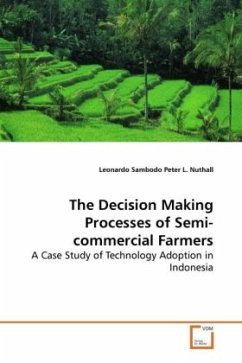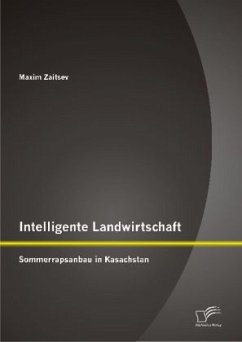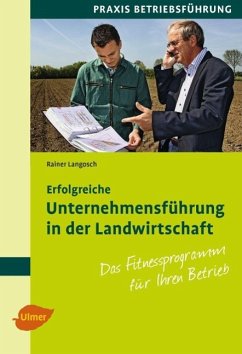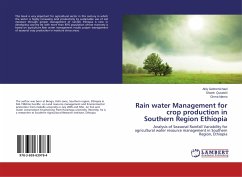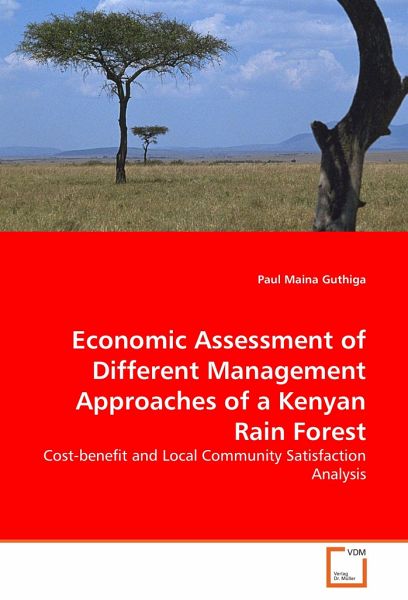
Economic Assessment of Different Management Approaches of a Kenyan Rain Forest
Cost-benefit and Local Community Satisfaction Analysis
Versandkostenfrei!
Versandfertig in 6-10 Tagen
45,99 €
inkl. MwSt.

PAYBACK Punkte
23 °P sammeln!
Forest conservation, as an economic undertaking, involves use of resources (costs) as well as generation and distribution of benefits. These resources ought to be allocated so as to generate maximum net benefits for society. In addition, costs and benefits ought to be distributed equitably among stakeholders. Support of communities living adjacent to tropical forests is critical for success of conservation efforts, but often their views are ignored in conservation decisions. Kakamega forest, a tropical rainforest in Kenya is divided into three different parts each under a distinct management a...
Forest conservation, as an economic undertaking, involves use of resources (costs) as well as generation and distribution of benefits. These resources ought to be allocated so as to generate maximum net benefits for society. In addition, costs and benefits ought to be distributed equitably among stakeholders. Support of communities living adjacent to tropical forests is critical for success of conservation efforts, but often their views are ignored in conservation decisions. Kakamega forest, a tropical rainforest in Kenya is divided into three different parts each under a distinct management approach. This study applied cost-benefit analysis to analyze and compare economic efficiency of the three management approaches. Further, the study applied the concept of consumer satisfaction to analyze local community satisfaction levels with three management approaches. The results indicate that from a global point of view, the three management approaches are economically efficient. But, at the local and national level, the opportunity costs of conservation outweigh the benefits. Local communities ranked the protectionist approach highest overall.







